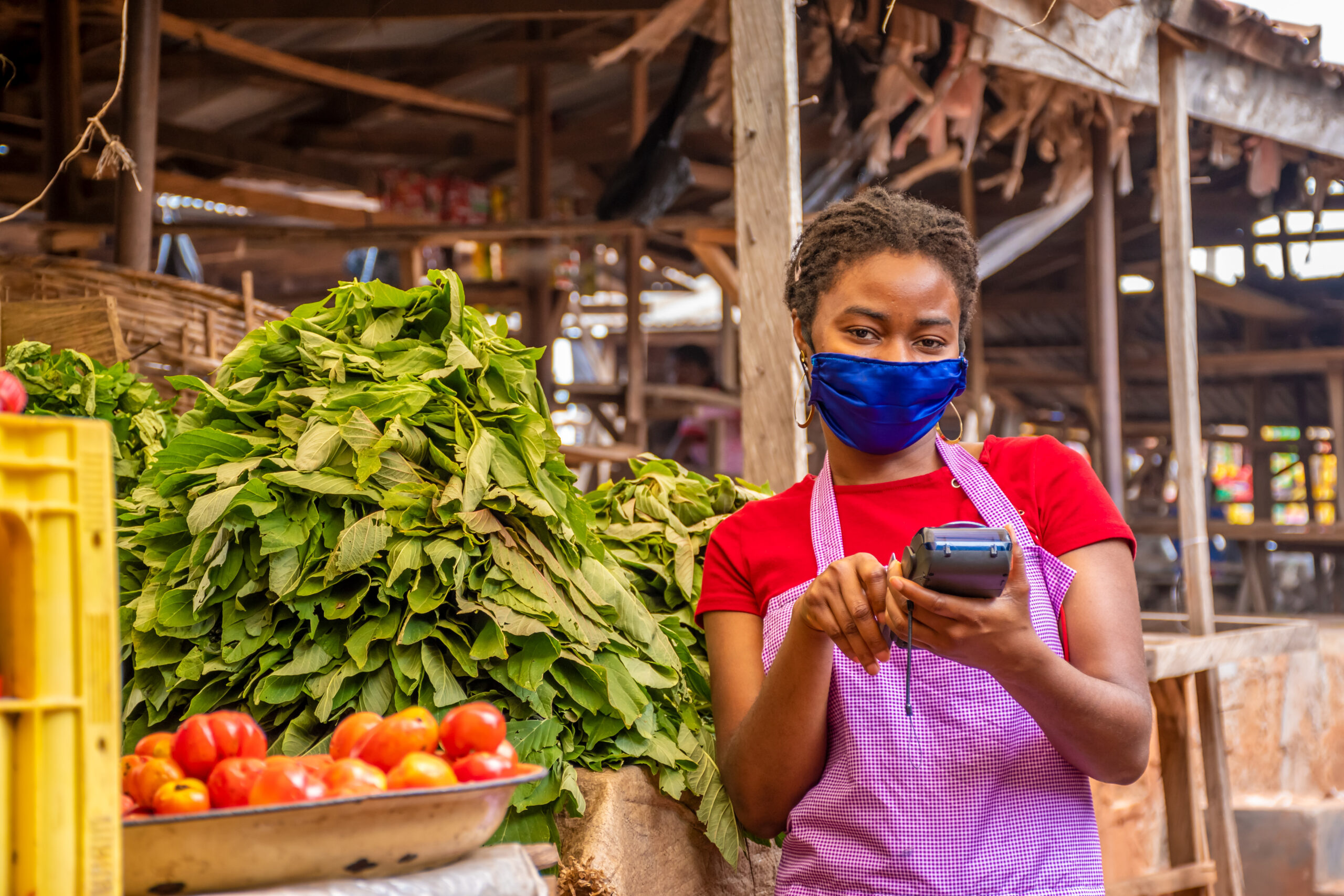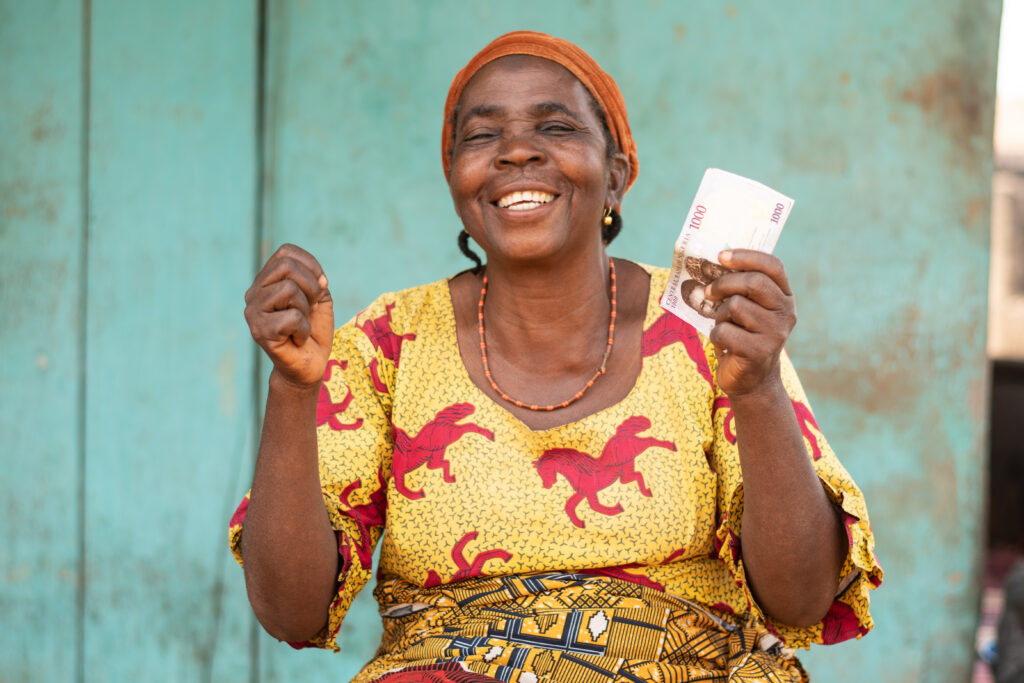
Increasing the confidence of rural communities to use mobile money

The Challenge
rising mobile money fraud in sub-saharan africa
Mobile money has become one of the key drivers of digital financial inclusion in Sub-Saharan Africa, allowing millions of individuals in both urban and rural areas to access financial services conveniently, with Africa accounting for 70% of the world’s $1 trillion transaction value. It has increased access to the digital economy, with evidence showing women’s financial inclusion has advanced.
However, as the usage of mobile money increases, so do its associated risks and challenges. Mobile money fraud is a growing challenge, with scammers continuously finding innovative ways to exploit users, many of whom are the most vulnerable groups who mostly are unaware of the risks. The lack of awareness about mobile money fraud has made individuals, particularly in rural areas, more vulnerable and susceptible to scams.
Edutainment as a tool for change
A consortium of partners representing academia, a mobile network operator, social enterprise and the development sector are collaborating to investigating the role of digital training and edutainment content in changing community behaviours towards spotting and avoiding mobile money fraud scams.
Through the initial phase of the project, an offline mobile application was piloted to deliver video-based training (2D Animation) in a local language of Chichewa to village saving groups in Malawi, re-creating common fraud scenarios.

Project Partners

Project Supporters

Pilot Timeline
September 2023
Launch of Partnership
The partnership was formed after a Royal Academy of Engineering Frontiers Symposium in Bangalore, India
Q4 2023
Content Development
Content for the pilot was developed after consultation with target communities
Q1, Q2 2024
Field Implementation
Content was delivered to target VSLA groups and control groups by CADECOM, and data was collected
November 2024
Stakeholder Webinar
The pilot findings was presented to over 190 delegates, including a key note speech from MACRA, and presentations from GSMA and Malawi Mobile Money Fraud Prevention Taskforce
Pilot Content
In the pilot project in Malawi, the team re-created common fraud scenarios into the form of short animated films in the local language of Chichewa. The scenarios included the below:
01
Winning a Competition
An individual receives an SMS claiming that they have won a competition. When redeeming their prize, they are informed that a transportation cost would first be paid via mobile money. The prize does not arrive.
02
Sent Money by ‘Mistake’
An individual working in the market receives an SMS noting a transaction received before an inbound call arrives immediately. The caller claims that they have sent funds by mistake and urges the lady to quickly return the funds. Later that evening, the individual realises that in fact, the funds were never sent.
03
Unauthorised Sim Swap
When a call is blocked, a gentleman uses a family members’ mobile to call his service provider. The customer service representative informs that the sim has been transferred to another number in an unauthorised sim swap. The video teaches about the importance of not sharing personal details or pin to anyone.
04
Counterfeit Money
On an evening, a fraudster visited a mobile money agent to deposit money on their account. The next morning, they visited a different operator to cash out. It was not until after the event that the original agent had realised that the notes provided were counterfeit.
05
Relative In Trouble
A small business owner receives a telephone call from an individual impersonating a doctor. He is informed that a family member has been involved in a road traffic accident and is in urgent need of blood. During the phone call, the business owner writes down the number provided and transfers funds to what he thought was a legitimate doctor.
06
Social Cash Transfer Scam
A fraudster posing as a representative of a social cash transfer programme advises a young lady that they can secure their place on the list by paying a small registration fee. Whilst initially excited and handing the money over, when speaking with a friend later that day, they begin to express concern that it may not have been legitimate.
What Did We Learn?
A total of 287 individuals from the fifteen Village savings and loan groups were trained in mobile money fraud, of which 183 were from GVH Chamkoma and 104 individuals were from GVH Chidzaye. The training was facilitated by the trained agents together with government staff. 12 groups were trained using Rural Inclusion’s platform for one day and a series of at least 2 follow-ups. Control groups were trained using simple narration about the scenarios and seeking a reflection from the participants. A month after the training, CADECOM collected data on the same scenarios as presented before the training to test how the participants would recall.
- Generally, the treatment groups demonstrated high levels of understanding relative to the control groups as observed by the facilitators of the FGDs.
- Across the groups regardless of whether they were control or treatment, the results show that the majority of rural communities are less aware about mobile money fraud.
- Almost zero knowledge of counterfeit money – It was reported that the concept was first heard during the pilot.
- Generally, it was observed that participants from the treatments groups were able to recall more contents of scenarios presented using the digital content.
Partner with us!
Collaborate with us to scale our impact in the second stage of the project during 2025-2027